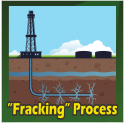New Marcellus Shale Study Says Marcellus Shale is Better Than Coal
On Thursday, August 18, 2011
0
comments
Marcellus gas has less impact on global warming than coal, according to a recent study by scientists at Carnegie Mellon University.
The peer-reviewed study published Aug. 5 in “Environmental Research Letters” appears to be a direct refutation of an April study from researchers Robert Howarth and Anthony Ingraffea at Cornell University that indicated that shale gas was worse for global warming than coal.
The Cornell study had a number of faults — acknowledged by its authors — including sketchy data that did not directly apply to Marcellus drilling operations.
The Carnegie Mellon study looks specifically at Marcellus and the “life cycle greenhouse gas emmissions” associated with its production and consumption.
Marcellus gas is essentially no different than conventional natural gas, the study found, and 20-50 percent cleaner than coal for producing electricity.
“Marcellus shale gas emits 50 percent fewer greenhouse gas emissions than any U.S. coal-fired plant,” said study co-author Chris Hendrickson. “We favor extraction of Marcellus shale natural gas as long as the extraction is managed to minimize adverse economic, environmental and social impacts.”
Former DEP Secretary John Hanger lauded the new study on his blog, saying it “debunks and decimates professor Howarth’s hit piece study that the NYT gas reporter and other media gave so much attention.”
“By contrast,” Hanger said, “the CMU study has received very little press attention so the result remains that many people think Howarth is the final word on this important matter.”
The new study does support “green completions” — in which gas is captured during the earliest stages of production rather than being vented or flared into the atmosphere. Proposed shale gas rules from the EPA would require green completions.
“Green completion... would significantly reduce the largest source of emissions specific to Marcellus gas preproduction,” the study says, but it adds that such emissions are a small portion of the life cycle estimates.
The study’s authors said greenhouse gas emissions are not the only challenge when it comes to extracting shale gas.
“We still need to study other environmental issues, including use of water and disruption of natural habitats,” said co-author Paulina Jaramillo.
The peer-reviewed study published Aug. 5 in “Environmental Research Letters” appears to be a direct refutation of an April study from researchers Robert Howarth and Anthony Ingraffea at Cornell University that indicated that shale gas was worse for global warming than coal.
The Cornell study had a number of faults — acknowledged by its authors — including sketchy data that did not directly apply to Marcellus drilling operations.
The Carnegie Mellon study looks specifically at Marcellus and the “life cycle greenhouse gas emmissions” associated with its production and consumption.
Marcellus gas is essentially no different than conventional natural gas, the study found, and 20-50 percent cleaner than coal for producing electricity.
“Marcellus shale gas emits 50 percent fewer greenhouse gas emissions than any U.S. coal-fired plant,” said study co-author Chris Hendrickson. “We favor extraction of Marcellus shale natural gas as long as the extraction is managed to minimize adverse economic, environmental and social impacts.”
Former DEP Secretary John Hanger lauded the new study on his blog, saying it “debunks and decimates professor Howarth’s hit piece study that the NYT gas reporter and other media gave so much attention.”
“By contrast,” Hanger said, “the CMU study has received very little press attention so the result remains that many people think Howarth is the final word on this important matter.”
The new study does support “green completions” — in which gas is captured during the earliest stages of production rather than being vented or flared into the atmosphere. Proposed shale gas rules from the EPA would require green completions.
“Green completion... would significantly reduce the largest source of emissions specific to Marcellus gas preproduction,” the study says, but it adds that such emissions are a small portion of the life cycle estimates.
The study’s authors said greenhouse gas emissions are not the only challenge when it comes to extracting shale gas.
“We still need to study other environmental issues, including use of water and disruption of natural habitats,” said co-author Paulina Jaramillo.







